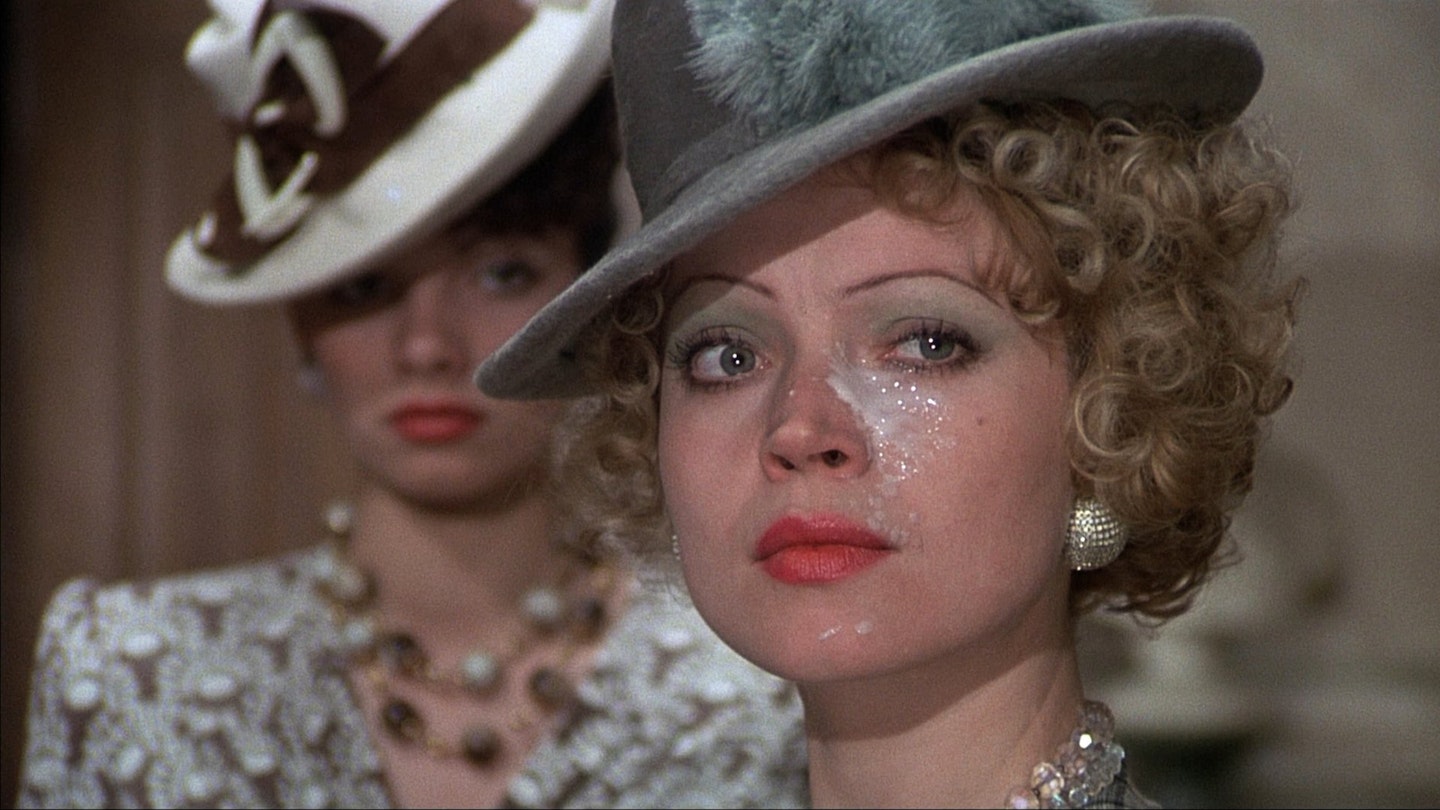One of those films anyone would be hard-put to like, this transposes the Marquis de Sade’s exercise in highly personal pornography to a specific Italian setting.
It’s an atrocity staged with precision, mostly shot in theatrical tableaux, with a great deal of attention to the sparse, decaying, luxurious décor and speechifying from the four establishment figure libertines and the story-telling mature harlots whose reminiscences are supposed to inspire the company to re-enactments.
Aside from the libertines, none of the characters are individuated – despite arbitrary divisions into guards, ‘fuckers’, male and female victims and other sub-categories. It is literally impossible at a first viewing (who would want another?) to tell these people apart except that one has a moustache or another curly.
The nastiest wrinkle is that the handsome young folk abducted into the castle all become complicit with the atrocities – there’s no difference between those who become the tormenting guards and those who become victims, and the final massacre is precipitated when victims try to get out of their fates by informing on other victims.
It’s mercifully distanced. Realising that on film shit-eating is a bigger shocker than tongue-cutting or scalping, director Pier Paolo Pasolini stages the last, fatal round of atrocities through distancing views or mullioned windows (oddest but somehow truest moment – a libertine turning binoculars the wrong way round to make a hanging seem further away than it is).
A disturbing, necessary film – designed to provoke extreme reaction, but blankly impersonal as it tries to conceal the clues (which are there) as to Pasolini’s own attitudes as they jibe or clash or exacerbate those of Sade.
